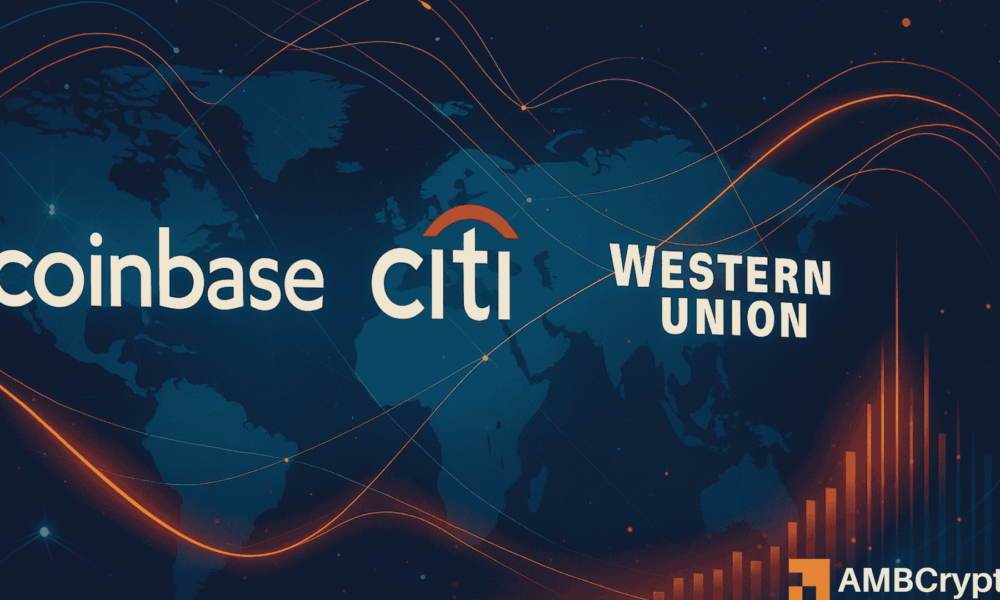The Future of Global Payments: Citigroup Partners with Coinbase for Enhanced Settlement Solutions
Introduction to a New Era of Payments
On October 27, Citigroup and Coinbase announced a transformative partnership aimed at redefining the financial system’s core settlement mechanisms. By integrating Coinbase’s settlement rails into its global payments infrastructure, Citigroup is positioning itself to facilitate faster, more efficient transactions for its institutional clients. This strategic collaboration marks a significant shift from traditional payment methods, promising to serve multinational corporations with access to blockchain-based solutions without requiring direct exposure to cryptocurrencies.
Streamlining Cross-Border Payments
The integration enables Citigroup’s clients to route fiat payments through Coinbase’s on- and off-ramp pathways. This provides instantly accessible on-chain liquidity, aiming to accelerate transaction settlement times significantly. While Citigroup operates in 94 markets and connects to over 300 payment networks globally, this partnership signifies the bank’s readiness to merge traditional finance with emerging blockchain technology. Multinational corporations can leverage higher efficiencies in their payment systems, moving towards a more streamlined approach that minimizes delays commonly associated with legacy banking methods.
From Speculation to Structural Integration
This partnership represents a fundamental change in how banks view cryptocurrency, transitioning from viewing it purely as a speculative asset to recognizing its potential as a reliable settlement infrastructure. Citigroup and Coinbase are now exploring on-chain payout methods, particularly focusing on the use of stablecoins. This exploration aligns neatly with the introduction of the GENIUS Act, a new regulatory framework in the U.S. aimed at defining and regulating dollar-backed stablecoins. This legislative framework provides a supportive background for institutions to adopt and utilize blockchain technologies for mainstream financial services.
Broader Trends in Financial Services
Citigroup’s collaboration with Coinbase is not an isolated case. Companies like Western Union are also testing stablecoin settlements, aiming to reduce their reliance on traditional correspondent banking networks. The recent earnings call from Western Union highlighted the company’s advancement in this space, focusing on the immediate settlement capabilities offered by dollar stablecoins, which stand in stark contrast to the multi-day settlement periods of conventional remittance services. This progression signals a potential industry-wide migration toward more efficient settlement alternatives, underscoring a growing consensus on the necessity for innovation in financial transactions.
The Push from Crypto Firms for Banking Integration
While traditional banks are integrating crypto solutions, exchanges like Crypto.com are actively seeking a more prominent role in the financial system. By applying for a U.S. National Trust Bank Charter, Crypto.com aims to operate as a regulated crypto custodian across the nation. This ambition signifies a critical shift in the landscape, where crypto firms aspire not merely to coexist with banks but to play an integral role in shaping the future of finance. The outcome of such initiatives will likely impact how quickly and thoroughly the cryptocurrency sector can gain a regulated status in the mainstream financial ecosystem.
Conclusion: The Future Direction of Financial Transactions
The partnership between Citigroup and Coinbase signifies a pivotal moment in the financial industry, indicating a move away from the traditional SWIFT network and correspondent banks toward a new hybrid model involving fiat-to-stablecoin conversions. As Citigroup deepens its institutional foothold through this integration, and as other companies like Crypto.com work to become recognized regulated players, we can expect continued evolution in global payment systems. Crucially, the upcoming developments will hinge on whether Citigroup’s clients will embrace these new settlement rails and how quickly industry players will adapt to the changing landscape driven by stablecoins and blockchain technology. The emergence of this new paradigm is set to redefine how money moves globally, restructuring the financial landscape from within.

















